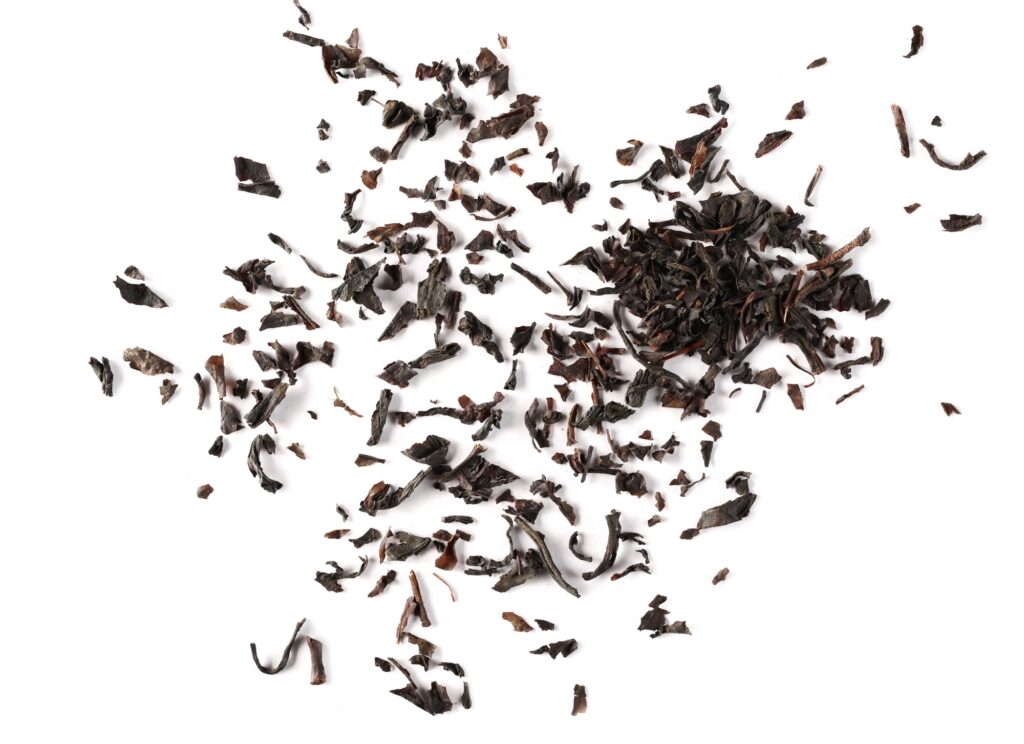
Black tea, an incredible beverage with a rich history, is known for its bold, robust flavor and deep color. It’s a staple in many households worldwide and has been a part of human culture for centuries.
Often, black tea is consumed for its taste. However, people are increasingly recognizing its potential health benefits. The brew is packed with bioactive compounds, contributing to overall health and wellness. From promoting heart health to aiding in weight management, black tea offers an array of benefits that are worth exploring.
As a beloved beverage, black tea offers more than just a comforting warmth and a delightful taste. It’s a treasure trove of health benefits that are backed by science. Let’s delve into the world of black tea and discover how this humble beverage can boost your well-being.
The History and Origin of Black Tea
Historically, black tea’s origin traces back to China, where it was known as “red tea” due to its reddish-brown brew. It was during the Ming Dynasty in the 14th century that the process of oxidizing tea leaves started, resulting in what we now know as black tea. This tea quickly gained popularity and became a significant part of Chinese culture.
From China, black tea spread to other parts of the world through trade routes. It was in the 17th century that black tea reached Europe, particularly England, where it became a symbol of sophistication and class. In the 19th century, tea plantations were established in India and Sri Lanka, further expanding the popularity and production of black tea.
Today, black tea is cherished across continents for its distinctive taste and the numerous black tea benefits. It’s a testament to the power of tradition and the enduring appeal of this remarkable beverage.
Nutritional Profile of Black Tea
Black tea is a nutritional powerhouse. It’s rich in antioxidants known as polyphenols, which have been linked to improved heart health, reduced cholesterol levels, and lower risk of stroke. Polyphenols are also known to have anti-inflammatory and antimicrobial properties.
Aside from polyphenols, black tea is a good source of several minerals like manganese, which helps in bone development and body metabolism. It also contains small amounts of magnesium, potassium, and calcium. Furthermore, black tea provides caffeine, a stimulant known to enhance brain function and mood.
The nutritional profile of black tea is an asset that goes beyond just adding a burst of flavor to your day. The wealth of nutrients it contains contributes to the numerous black tea benefits that enhance overall health and well-being.
The Science Behind Black Tea Benefits

There’s a substantial amount of scientific research that backs the health benefits of black tea. The polyphenols found in black tea, particularly theaflavins and thearubigins, have been the subject of numerous studies. These compounds have been linked to reduced inflammation, prevention of heart diseases, and even cancer prevention.
Further research suggests that the polyphenols in black tea can improve gut health by promoting the growth of good bacteria and inhibiting the growth of bad bacteria. There’s also evidence pointing towards black tea’s role in weight management, with studies showing it can help reduce body weight and body fat by increasing fat oxidation and improving gut microbiota.
The science behind black tea benefits is compelling, providing a strong foundation for the belief in its health-enhancing properties.
Remarkable Health Benefits of Black Tea
Black tea boasts an array of health benefits, thanks to its rich nutritional profile. Regular consumption of black tea can support heart health by reducing LDL cholesterol, the ‘bad’ cholesterol. Studies have shown that people who drink three or more cups of black tea daily have a significantly lower risk of heart disease.
Additionally, black tea is beneficial for gut health. The polyphenols it contains help maintain a healthy gut by promoting the growth of beneficial bacteria and inhibiting harmful ones. A healthy gut contributes to improved digestion, immunity, and even mental health.
Black tea can also help with weight management. Research suggests that the polyphenols in black tea can enhance weight loss efforts by boosting metabolism and fat oxidation. It’s a weight-friendly beverage that can support your wellness journey.
How Black Tea Boosts Well-being
Black tea can significantly contribute to overall well-being. It’s a great source of hydration, providing a flavorful alternative to plain water. The caffeine content in black tea can enhance mental alertness and improve mood, thereby boosting mental well-being.
The antioxidants in black tea can also help combat oxidative stress, a key factor in aging and many diseases. By reducing oxidative stress, black tea supports cellular health, promoting overall well-being.
Moreover, the ritual of brewing and drinking tea can have therapeutic effects. It can serve as a mindful break from the hustle and bustle of daily life, offering a moment of tranquility and relaxation.
Comparing Black Tea to Other Teas

Black tea stands out among other teas for its robust flavor and higher caffeine content. While green tea is praised for its high antioxidant content, black tea is not far behind. In fact, the oxidation process black tea undergoes increases the levels of theaflavins and thearubigins, two types of antioxidants unique to black tea.
Compared to herbal teas, black tea contains actual tea leaves, which means it provides the full range of health benefits associated with tea’s bioactive compounds. Herbal teas, on the other hand, may lack these compounds as they are often made from a variety of plants other than Camellia sinensis.
Each tea type has its unique benefits and flavor profiles. However, when it comes to a tea that offers a delightful taste, a caffeine boost, and a range of health benefits, black tea is a worthy contender.
How to Brew the Perfect Cup of Black Tea
Brewing the perfect cup of black tea is an art. Start with fresh, cold water. The water quality can significantly impact the tea’s flavor. Heat the water until it’s almost boiling, around 200°F. Then, add your tea leaves. A general rule of thumb is to use one teaspoon of tea leaves for every 8 ounces of water.
Allow the tea to steep for 3-5 minutes, depending on your taste preference. The longer the steeping time, the stronger the flavor. However, steeping too long can result in a bitter taste. Once the tea has steeped, remove the leaves by straining the tea into a cup.
Enjoy your black tea as is, or if you prefer, add a touch of milk, a spoonful of honey, or a slice of lemon. The perfect cup of black tea is one that suits your taste buds the best.
Potential Side Effects of Black Tea
While black tea is generally safe for consumption, it’s important to consider some potential side effects, especially when consumed in large amounts. Due to its caffeine content, excessive consumption of black tea may lead to caffeine-related side effects such as jitteriness, headaches, and disrupted sleep patterns.
Furthermore, black tea contains tannins which, when consumed excessively, can interfere with the absorption of certain nutrients like iron. It’s advised to consume black tea in moderation and not in close proximity to meals to avoid hindering nutrient absorption.
Like everything else, black tea should be enjoyed in moderation. It’s a part of a balanced lifestyle, not a replacement for a varied, nutritious diet, and a healthy lifestyle.
Embrace the Black Tea Lifestyle for Better Well-being
Black tea is more than just a flavorful beverage. It’s a wellness elixir that offers remarkable health benefits. From supporting heart health to promoting a healthy gut, aiding in weight management, and boosting overall well-being, the benefits of black tea are extensive and scientifically backed.
Embrace the black tea lifestyle by incorporating this wonderful beverage into your daily routine. It’s a simple step that can contribute significantly to your journey to better health and well-being. Remember, the key is moderation and balance. So, brew a cup, sit back, and savor the nourishing goodness of black tea.






